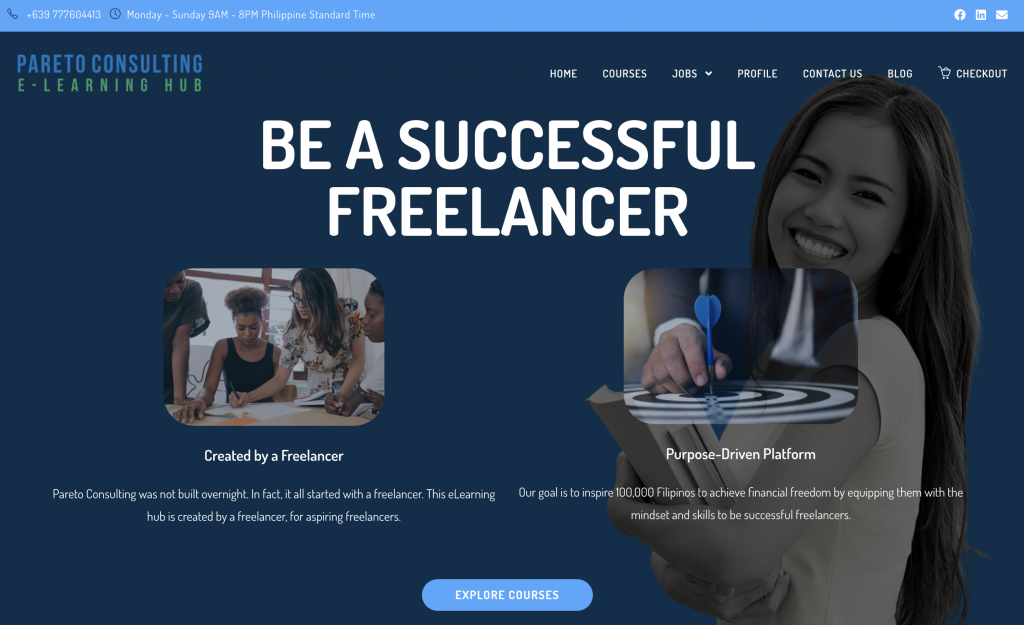
The job of an IT consultant is highly technical and will pay well. In this career path, you'll need to develop knowledge of various technologies and tools. A successful candidate will have knowledge of both hardware and software. A certification indicates that an individual is knowledgeable in a specific field. Examples of such certifications include Microsoft Office User Specialist and Apple Certified Support Professional. This will give your employer proof of your knowledge.
Average base salary
Your average base salary as an IT consultant will be approximately 94,200 USD annually. It is hard to establish a range of salary for the same job, but it is common to assume that you will earn more if you have lots of experience. The median is the average salary, with half of workers earning less and half earning more. The figures shown here are not necessarily representative of all workers and may vary by company and office.
While the average salary for it consultants may be a bit higher than the national median, the pay at the big four consulting firms differ slightly from regional to regional comparisons. The average consultant at mid-sized management consulting firms earns nearly five times that of Tier 2 firms. However, the compensation for entry-level it consultants at Big 4 firms is considerably higher than their peers in smaller firms. PwC Atlanta's associate would earn $51,000 more than that of the New York office.

Variation in base pay based upon company size
There is strong correlation between employee salary and company size. But, how does employee compensation change depending on the size of the company? One study found that the median salary for companies with revenues less than $300,000,000 was more than $100,000. The highest paid companies had a median of $70,000. The researchers believe this discrepancy is due to large overseas workforces and part-time employees. The correlation does not necessarily indicate a causal relationship.
Performance bonuses
The varying levels of consulting performance bonuses have a direct impact on compensation and career choice. The bonuses at Tier 2 and Big 4 firms can vary greatly depending on the company and the circumstances. Some firms offer greater bonuses than others. The amount and type of performance bonus offered depends on many factors. These include the company's overall pay model, its first-year learning curve, bonuses from its subsidiaries, and any bonuses it receives from affiliated firms.
Consultant compensation packages can vary widely. The most common is a signing bonus equal to ten percent to twenty percent of the base salary. Many firms also offer bonuses that go beyond the base salary, such as a 15% profit-sharing bonus for achieving a specific client-sales target. These bonuses are common at high-ranking consulting firms that offer competitive salaries. They are usually a portion of the consultant's salary, and they are rarely paid overtime.
Benefits of being certified IT consultant
It is a great way for your IT consultant to increase their salary. A certification shows that you have extensive training and know-how in a specific area. You can also gain contacts by interning at an IT company. Certification also shows your expertise in real-world situations. Microsoft Office User Specialist certifications and Apple Certified Support Professional certifications are examples. Certifications aren't required but can help you increase your chances for being hired by companies.

A cybersecurity certified IT consultant can help you protect your clients' data and make sure that they are safe. Cyberattacks are a growing concern for government and business organizations. Security consultants work at the frontlines to protect digital assets. Consultants are responsible for installing virus protection, securing networks, and developing a response plan in case of data breaches. Certification as an IT consultant has many other benefits.
FAQ
Who hires consultants
Many businesses hire consultants to assist them with their projects. These include small businesses, large companies, government agencies and non-profits.
While some consultants work for these companies, others are freelancers. The hiring process for both cases varies depending upon the project's size and complexity.
Many rounds of interviews are required when hiring consultants. Then, the final decision will be made about who you believe is best for the job.
What is the difference of a consultant versus an advisor?
An advisor is someone who provides information about a subject. A consultant offers solutions to problems.
Consultants work directly with clients to help them reach their goals. Advisors advise clients indirectly via books, magazines, lectures and seminars, etc.
What types of jobs are available as a consultant?
Consulting requires an in-depth understanding of operations and business strategy. Understanding the business world and how it fits into society is essential.
Being a consultant requires great communication skills and the ability think critically.
Consultants must be adaptable because they may be asked to do different tasks at different times. They should be able change direction quickly, if required.
They should be willing to travel extensively on behalf of their clients. This kind of work can take them around the world.
They need to be able and able to manage pressure and stress. Consultants might sometimes have to meet tight deadlines.
As a consultant, you may be expected to work long hours. This can mean you might not always receive overtime compensation.
How much do consultants make?
While some consultants make $100k+ per year, most consultants only earn between $25-$50k. The average consultant salary is $39,000 This applies to both hourly and salaried consultants.
Salary depends on the experience of the consultant, their location, industry, type and length of the contract (contractor or employee), as well as whether they have their own office or work remotely.
Why should you hire consultants?
There are many factors that could lead to you hiring consultants.
-
Your organization may have a specific project or problem that needs solving
-
You want to increase your skills and learn something new
-
It is important to work with an expert on a subject area
-
The task is yours alone.
-
You feel overwhelmed by all the information and don’t know where to begin.
-
You can't afford to pay someone full-time
Referrals are the best way for you to find a qualified consultant. Ask your friends and colleagues if they know of any trustworthy consultants. Ask your friends and family for referrals if you know someone who is a consultant.
If you're interested in using online directories, such as LinkedIn, you can use the "Search People” feature to find consultants near your location.
Statistics
- According to IBISWorld, revenues in the consulting industry will exceed $261 billion in 2020. (nerdwallet.com)
- 67% of consultants start their consulting businesses after quitting their jobs, while 33% start while they're still at their jobs. (consultingsuccess.com)
- WHY choose me: Why your ideal client should choose you (ex: 10 years of experience and 6-week program has helped over 20 clients boost their sales by an average of 33% in 6 months). (consultingsuccess.com)
- On average, your program increases the sales team's performance by 33%. (consultingsuccess.com)
- My 10 years of experience and 6-step program have helped over 20 clients boost their sales by an average of 33% in 6 months. (consultingsuccess.com)
External Links
How To
What does a typical day look like for a consultant?
Each type of work will dictate the day's pace. You will be spending time researching, planning new ideas, meeting with clients, and creating reports.
Clients will often meet with you to discuss their problems. These meetings can be done over the phone or via email.
Also, proposals are documents that outline your ideas or plans for clients. Before presenting these proposals to clients, you will usually need to discuss them with a colleague or mentor.
After all the preparation, you'll need to start creating content. This could include writing articles, designing websites or editing photos.
It depends on the project's scope, you might need to do some research to collect relevant statistics. It may be necessary to know how many customers are currently using your products or services.
Once you have gathered enough information, it's time to present your findings to clients. You can present your findings verbally or in writing.
You must also follow up with clients following the initial consultation. For example, you might call them periodically to see how things are going or send emails asking them to confirm that they received your proposal.
Although this process can take time, it is important to stay focused and build good relationships with your clients.